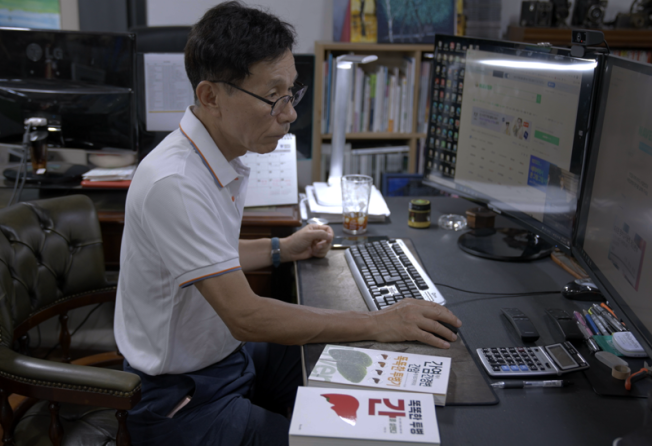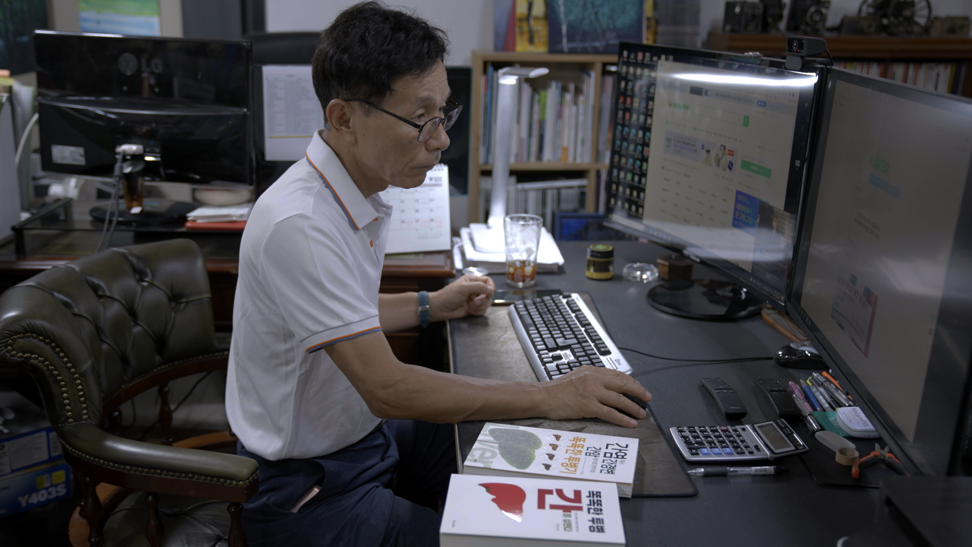How can Asia eradicate hepatitis B if most cases go undiagnosed?
- Most people infected with the serious liver infection caused by hepatitis B virus are unaware they have the disease, research suggests
- Early diagnosis and treatment with antiviral drugs can prevent its development into chronic liver disease

Retired South Korean salesman Min Kyeung-yun’s world turned upside down when he accompanied his wife to her health check-up – only to discover he had long been suffering from the chronic liver infection, hepatitis B, which had led to him developing liver cancer.
Min would discover that he and four of his siblings had been infected with hepatitis B at birth. “My mother had hepatitis B, but she didn’t know she had it,” he says. “So, out of the six siblings in my family, only my sister wasn’t infected. Two of my older brothers passed away in their 50s.”
My mother had hepatitis B, but she didn’t know she had it. So, out of the six siblings in my family, only my sister wasn’t infected. Two of my older brothers passed away in their 50s
The Asia-Pacific region, which is home to more than half of the global population, accounted for more than 62 per cent of worldwide deaths caused by liver disease in 2015. Chronic hepatitis B virus infection led to more than half of those deaths, the United States’ National Centre for Biotechnology Information reported.
Each year an estimated 140,000 people in the Western Pacific region, which includes parts of Asia, are infected with the virus, yet most cases go undiagnosed. A lack of awareness of hepatitis B is the primary reason, research shows.
A study by the World Health Organization (WHO) suggests only 10 per cent of individuals infected with hepatitis B, which is manageable with treatment, are aware that they have it – potentially putting millions of people at risk from life-threatening complications associated with the virus.

The research-based pharmaceutical company Gilead Sciences carried out analysis last year in Hong Kong, Malaysia, Singapore, South Korea and Taiwan as part of a pan-Asia regional liver index study, which revealed a significant lack of public awareness of hepatitis.
Health experts worldwide are worried about the disparity in the number of people assumed to be living with hepatitis B, the rates of diagnosis and the number of patients receiving treatment.
Hepatitis B is often called a “silent killer” because the symptoms rarely appear until the disease has reached an advanced stage. If left untreated, the virus can lead to cirrhosis, or end-stage liver disease that severely impairs the function of the organ. This can increase the risk of developing hepatocellular carcinoma, the most common type of primary liver cancer.
There has been dramatic progress in the management of chronic hepatitis B during the last 20 years. Potent antiviral drugs can almost completely block the replication of the virus in the liver and prevent the progression to cirrhosis
The WHO is leading a global campaign to eradicate hepatitis B by 2030.
While South Korea’s efforts to eradicate hepatitis B are in line with WHO guidelines, the disease remains a major health care concern. An estimated 1.41 million people – 2.7 per cent of the nation’s population – many of whom are adults aged between 30 and 60, had the chronic disease last year.
However, in 2019 only 262,000 hepatitis B patients in the country were receiving treatment, according to a study published in May by the Korean Association for the Study of the Liver.
Min now spends most of his free time overseeing an online forum, which offers South Korean people basic information about hepatitis B. The forum has become a safe space for individuals to share their fears about the disease.

Professor Lim Young-suk, a liver specialist at the Department of Gastroenterology and Liver Center at the Asan Medical Center in Seoul, says secondary prevention of liver cancer through the early diagnosis of hepatitis B and treatment with antiviral drugs is crucial in stopping its development into a serious liver disease.
“There has been dramatic progress in the management of chronic hepatitis B during the last 20 years,” he says.
“We now have very potent antiviral drugs that can almost completely block the replication of the virus in the liver and prevent the progression to cirrhosis.”
Whether it’s the prevention, getting screened, getting diagnosed, or getting treated, awareness of hepatitis B is the key trigger that enables that care to cascade
Caroline Choi, who works as Gilead Sciences’ senior director for medical affairs, Asia 5 – covering Hong Kong, Malaysia, Singapore, South Korea and Taiwan – based in Seoul, says eliminating hepatitis B requires a global effort.
It is important to raise public awareness about the transmission, diagnosis and treatment of the virus to change people’s attitudes and behaviour, she says.
The findings of Gilead’s regional liver index study led to this summer’s launch of its Asia Pacific ALL4LIVER Grant – focusing on chronic hepatitis B, under the theme of “Empowerment through Education”.

The new, biennial grant programme will support community-led projects in Asia-Pacific that can improve the liver health of people throughout the region.
Choi says there is also an urgent need for policymakers and the medical industry to better understand the real-world challenges facing patients, and the community issues that potentially hinder the care of people with hepatitis B.
“Whether it’s the prevention, getting screened, getting diagnosed, or getting treated, awareness is the key trigger that enables that care to cascade,” she says.
Although advances in science and medicine are important, we need to have that information accessible and readily understandable from the patients’ viewpoint, Choi adds.